We use cookies to improve our services and remember your choices for future visits. For more information see our Privacy Policy and Terms of Use.
The Love of the Game
Selections from the Archive
Mac Crane’s essay in our March issue, “ Loving a Sport That Doesn’t Always Love Me Back,” explores the author’s complex relationship with athletics and identity. After a childhood trouncing the boys during recess soccer games, Crane played Division 1 basketball in front of cheering crowds at Drexel University. As an adult the author seeks out that same sense of mastery at pickup basketball games at a local rec center. For Crane, who is nonbinary, that pursuit is challenged by the male players’ perception of them as a woman—someone who has to prove their right to join the team and whose prowess is often overlooked. Still, every time the author steps on the court, it’s a chance for them to revel in their skill and, as they say, “to fall in love—with the game, with myself—all over again.”
Keep reading for selections from our archive that capture the beauty, transformation, and intensity sports bring to our lives.
Take care and read well,
Nancy Holochwost, Associate Editor
Heather Sellers’s essay explores the therapeutic aspect of athletics, which so often are a way for people to inhabit stronger, more secure versions of themselves. Her decades-long relationship with bicycling, which carried her away from a difficult home and into a happier, more confident, more loving life, makes for a joyful read.
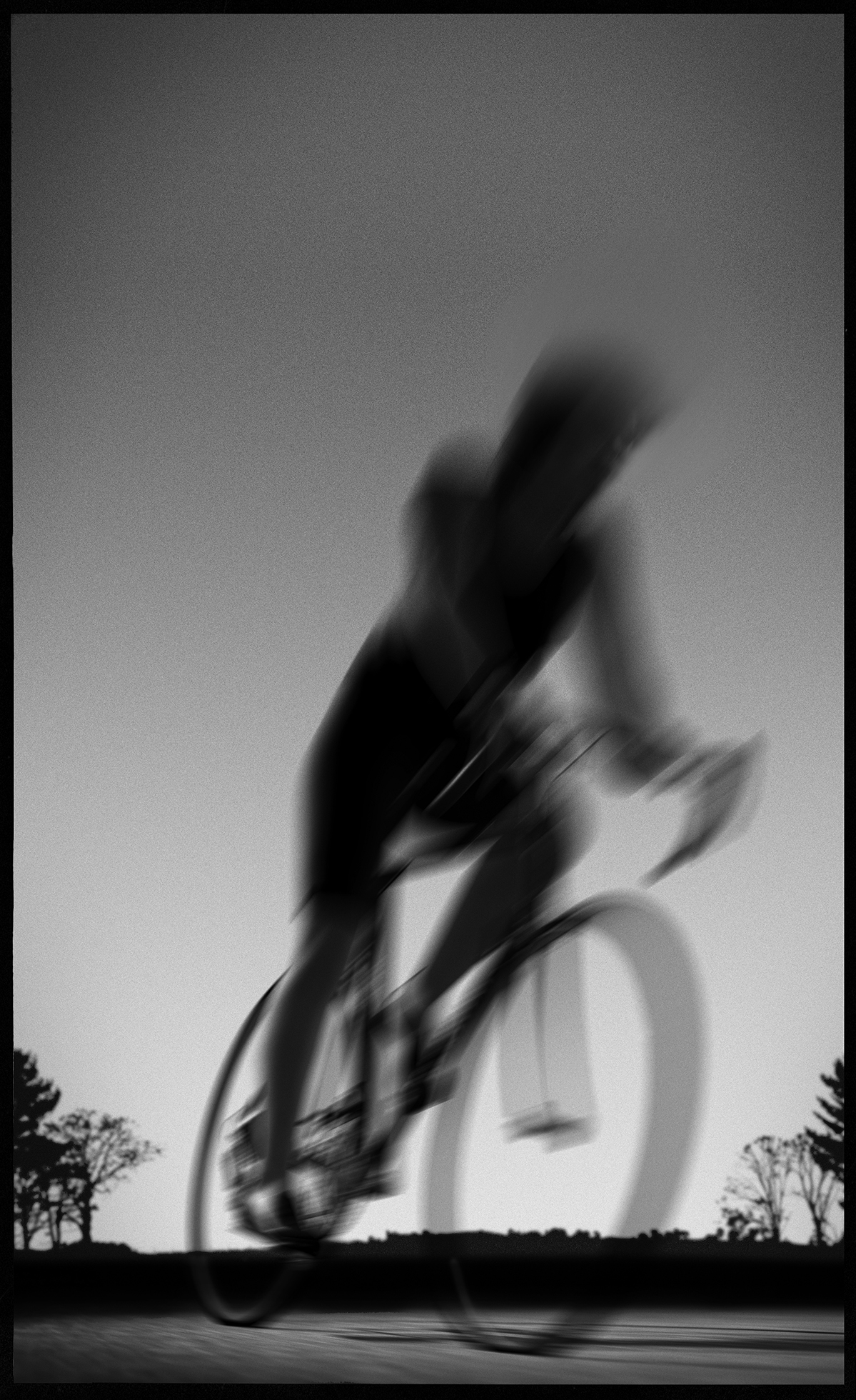
© Robert Graham
Pedal, Pedal, Pedal
You’re taller on a bike, and faster, and the air is cooler, because riding creates a breeze—a blessing in Florida summers. On a bike the world seems made just for you. The tires carry on a conversation with the road, and you are both a part of it and listening to it all at once.
January 2017Morgan Tyree took these beautifully evocative photographs of high-school football teams in rural communities across Wyoming and Montana, where some schools are so small they can’t fill a team roster. The collection of images captures each layer of the sport: the individual players, the teams, and the communities that support them.
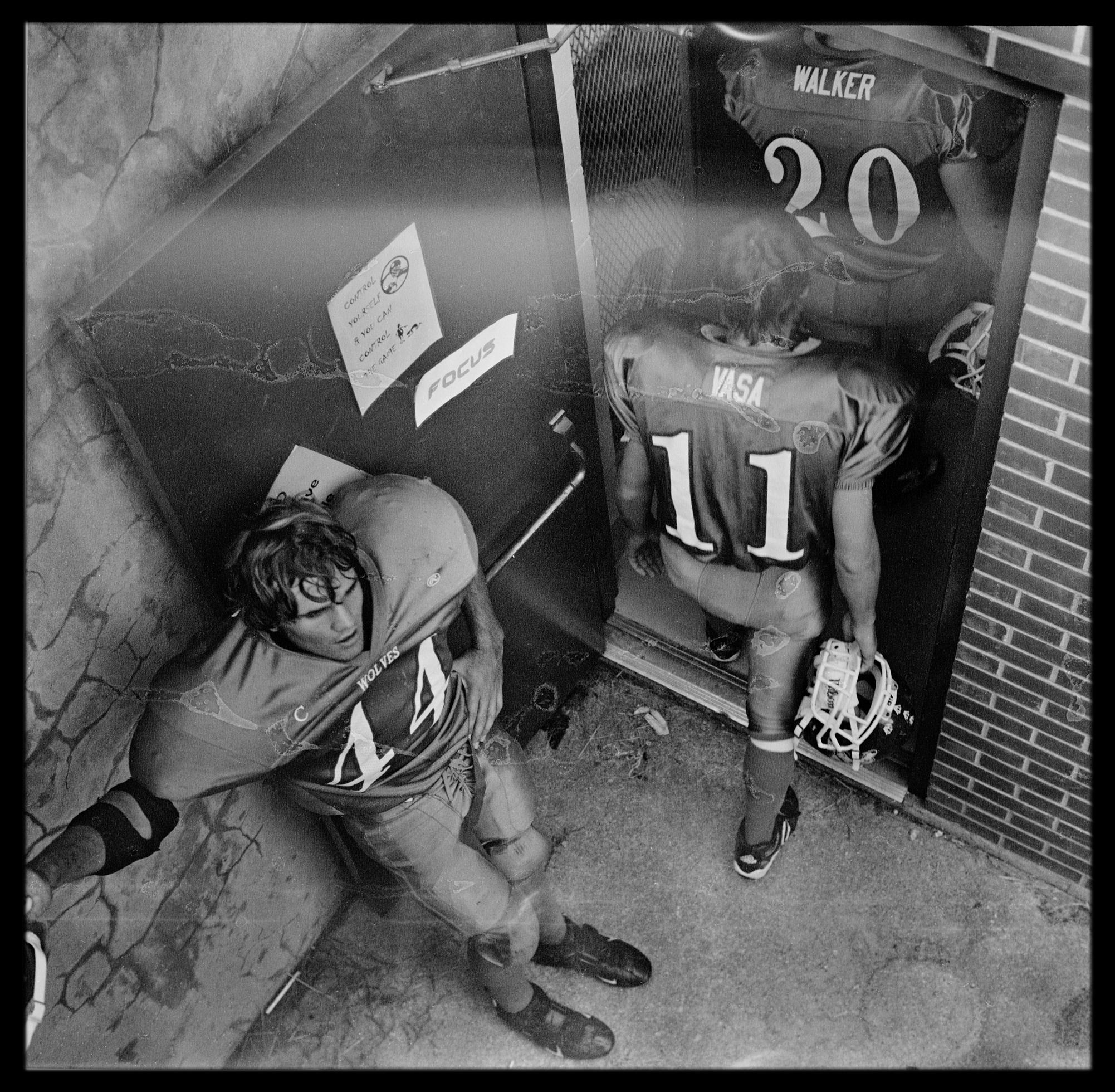
© Morgan Tyree
The Game
In 1997 I started traveling the remote two-lane highways of Wyoming and Montana, visiting small towns along the way to document the high-school football games served up on any given weekend. Many of these schools play football on Saturday afternoons due to the prohibitive cost of installing and maintaining floodlights. It’s not uncommon to see the high-school players walking across town in their uniforms on game day because the football field isn’t adjacent to the school. Sometimes it’s necessary before the game for someone to haul away the cow or bison manure that has accumulated on the field.
July 2009When I was a kid, I used to ride my bike in a loop around our backyard, and I still remember the excitement of speeding up to “jump” (two inches) over a particular tree root. That tiny moment of flight made me feel like I’d cleared a mountain. Jim Daniels’s poem, about a group of kids racing down a street, takes me back to that childhood sense of invincibility.
Eternal Moment of Running Wicked Fast
— for Leenie Moore
We run so fast these letters should be slanted, fastest at dusk when our breaths burn hot coals, sweat soaking our T-shirts, sneakers slapping pavement as we huff and puff and blow ourselves forward, kids racing, fists tight, arms pumping, phew, phew, bodies shooting off sparks, God loves us, life is good, we’ll live forever, sweat beading at hairlines, sweat blurring the last smudges of day, of play, of imaginary bases and end zones and finish lines dusting beneath the whap-whap and the whap-whap-whap, even the moon coming out to have a look, glowing its O of surprise.
February 2017This essay consists of a series of letters between Ross Gay and Noah Davis, who began playing basketball together after meeting in Indiana University’s MFA program. The tenderness and wonder Gay is known for are on full display as these two poets rhapsodize about the sport they love and the deep friendship it helped them form. (Don’t worry, basketball newcomers: the essay includes “A Brief Glossary for the Basketball Illiterate.”)
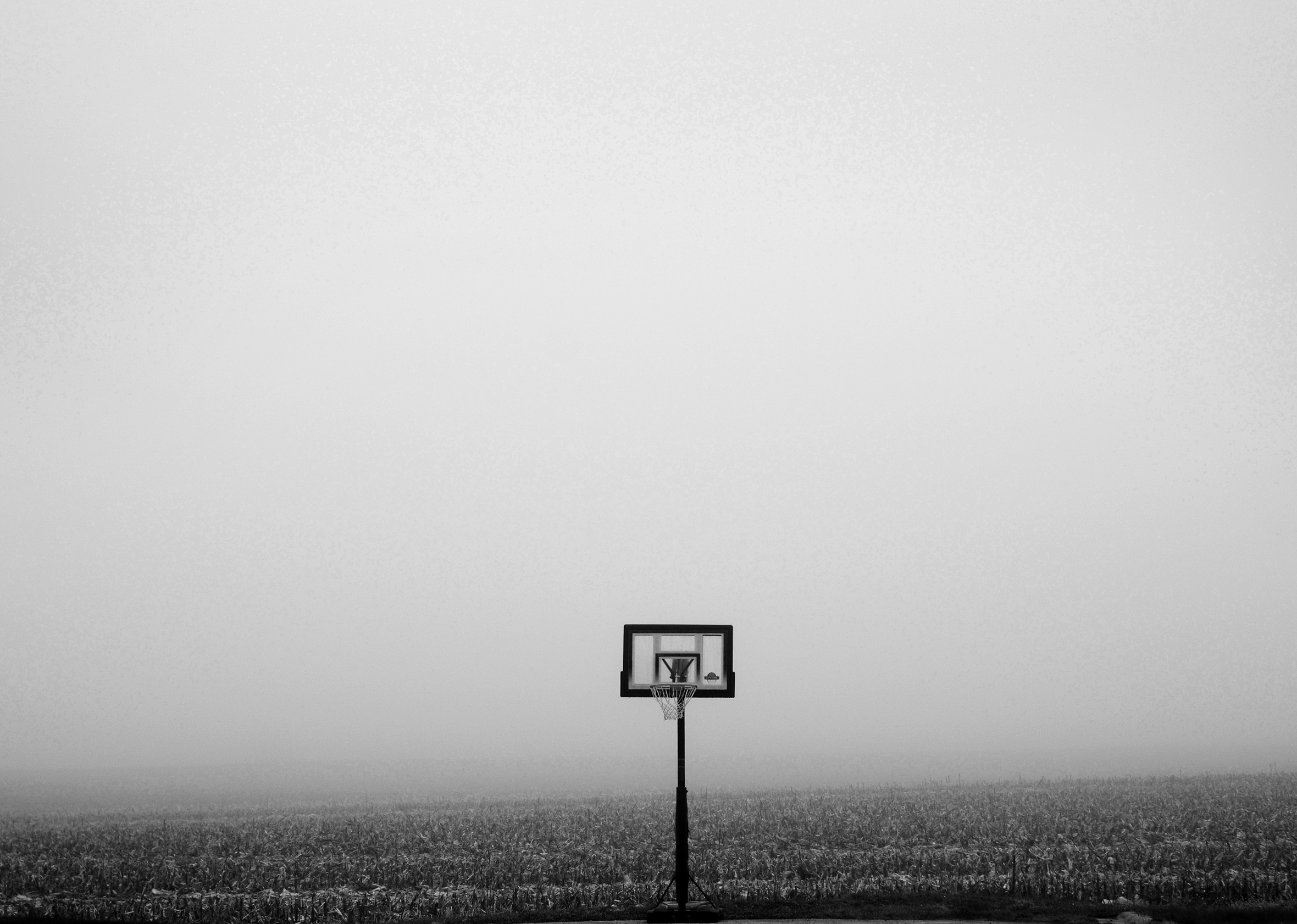
© Mike Voss
The Ramshackle Garden of Affection
Dear Noah: When you dunked on me the other day, it was affection. When I drop my shoulder into your sternum to make a little room for myself, it’s affection. When it heats up and we’re not laughing and an orbital bone might bust or a tooth loosen, it is, and always will be, affection. When you recover the loose ball I poked from your dribble and drop that thing through the rim and smack me in the ass running back; and when I hit a runner in the game after missing them all during warm-up and I smack my forearm into your back and holler, Gamer! Affection. Which, I’m discovering as I write this, is why I even play basketball: to consent to this ramshackle garden of affection.
Dear Ross: A young man playing with us slammed his elbow into your eyebrow while going for a rebound, splitting it open, and I affectionately asked you to go bleed off the court, so we wouldn’t have to stop the game. You tried to stop the flow with a band-aid, but blood ran down your nose and into your mouth. Damn, damn, damn. I should’ve brought you more paper towels. But you didn’t ask for that. You asked me to keep playing. Not to shy away from this kind of affection.
June 2020Our Readers Write feature was introduced in 1978, and two of the earliest sections were on the theme of sports. Some of the stories are like time capsules (did you know Babe Ruth once won a farting contest?), and others could have been written yesterday. Highlights include a submission from David Guy, a frequent contributor of book reviews (yes, we used to publish those) and essays to The Sun.
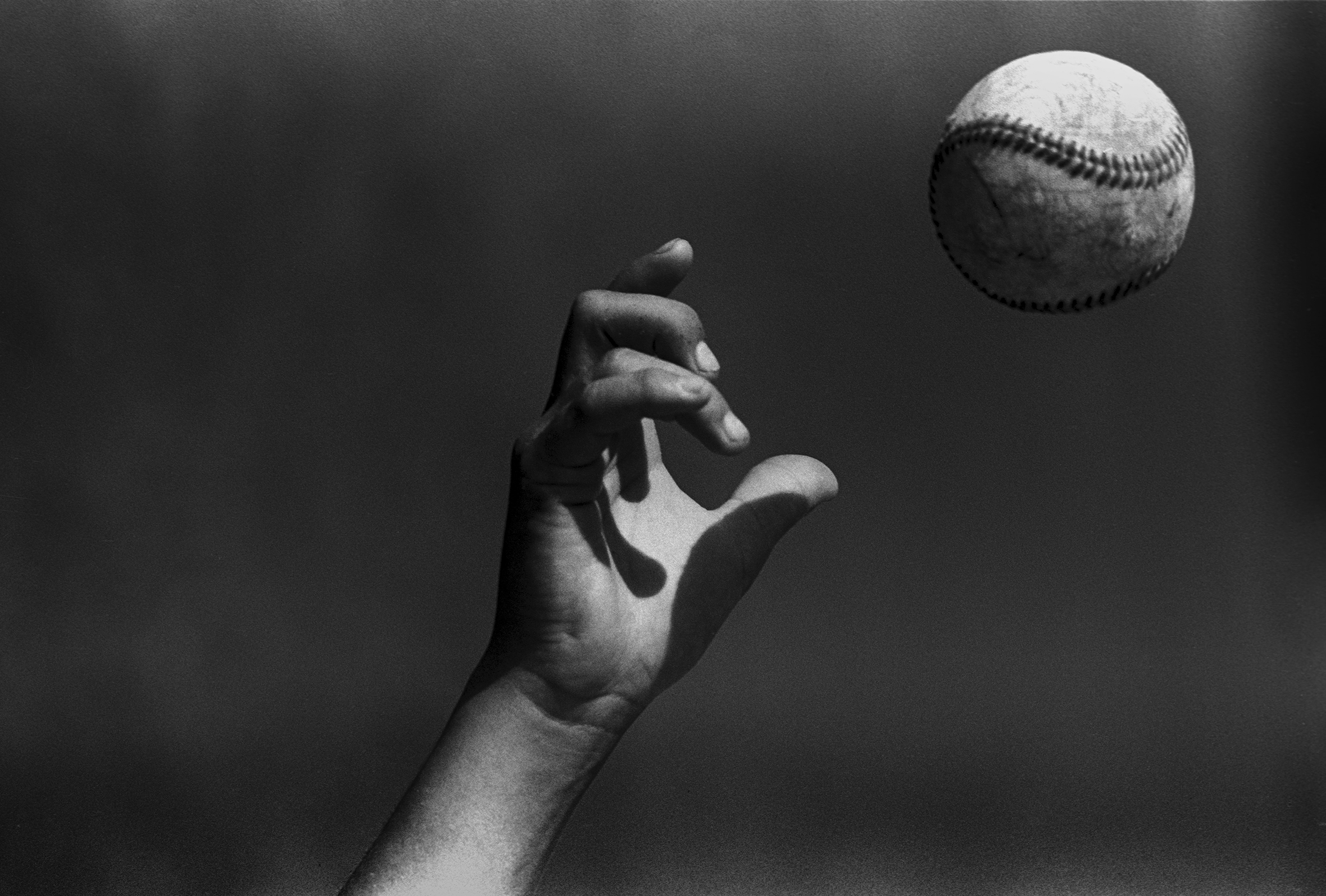
© Jon Kral
Sports (Part One)
I have a much fonder memory of games I played in childhood, football then too but also basketball and especially baseball, the backyard games that might start in the morning and wouldn’t end—though the teams would change, kids departing and arriving—until it was too dark to see the ball, in the narrow yard where first base was a gnarled tree and a line drive to left would scatter both teams, since short left field was the front yard of Old Man Repp, the neighborhood grouch.
—David Guy
December 1978Sports (Part Two)
I swung. A sweet solid surge of shock flowed into my arms. Instantly the ball was arching towards the center fielder. I watched him take two steps in as though to catch it. Suddenly he was backpedaling furiously and then turning and running full tilt with his back to the plate. The ball crashed into the base of the fence. By the time the fielder relayed it in, I found myself standing on third base. I had hit a curve ball. Not obliquely, passively, but with force and power. I had discovered a secret: Do not anticipate it; merely react to it.
—David Zucchino, Detroit, Michigan
February 1979Julie Burke’s account of her demanding father teaching her, at the age of twelve, to play golf is a classic story of a child trying not to disappoint a parent. This endeavor, of course, involves disappointment and frustration, but the game also gives the author a lens through which to understand a man she both loved and feared.
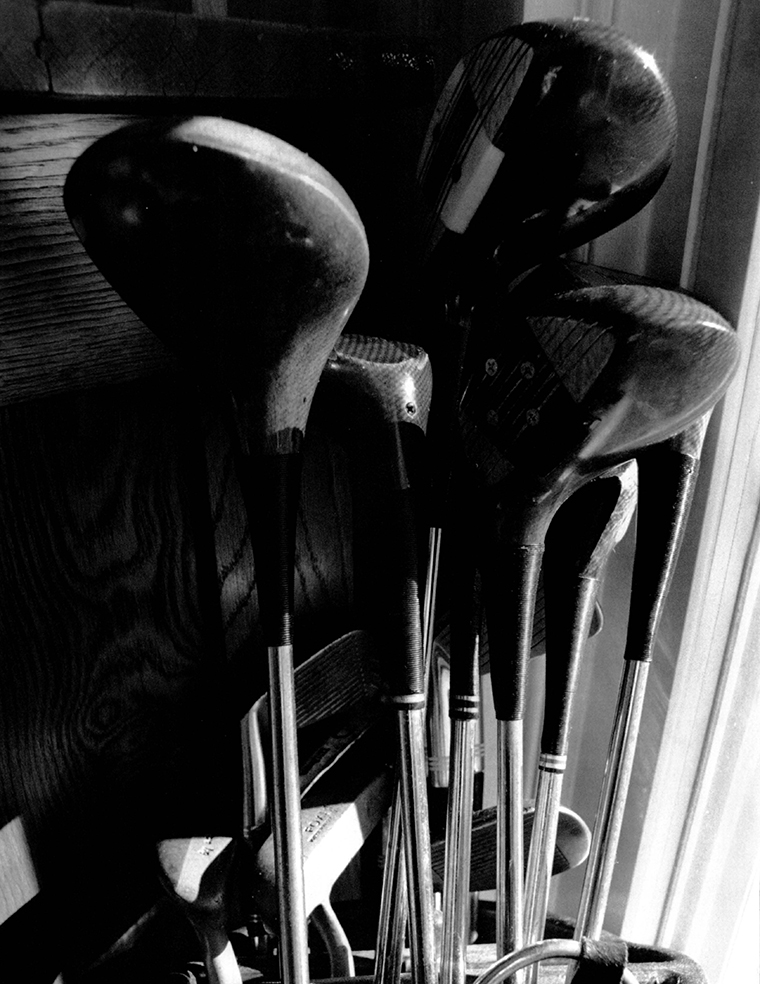
© Rachel J. Elliott
Meeting the Sky
It took me an entire hour to finish my first hole. We played five holes that day in the time it would have taken my dad to get through thirty-six—two full rounds of golf. I have no idea why, after that, I ever agreed to play again; I doubt I had a choice. But had I been asked, incredibly, I think I would have said, Yes, I would like to try again. I say “incredibly” because for me those five holes were nothing but sweat, gnats, blistered hands, aching elbows and shoulders, and heartbreak. I would have agreed to golf again with my father, however, simply because the invitation had been extended, though not with words.
March 2001We’ll mail you a free copy of this month’s issue. Plus you’ll get full online access—including more than 50 years of archives.
Request a Free Issue